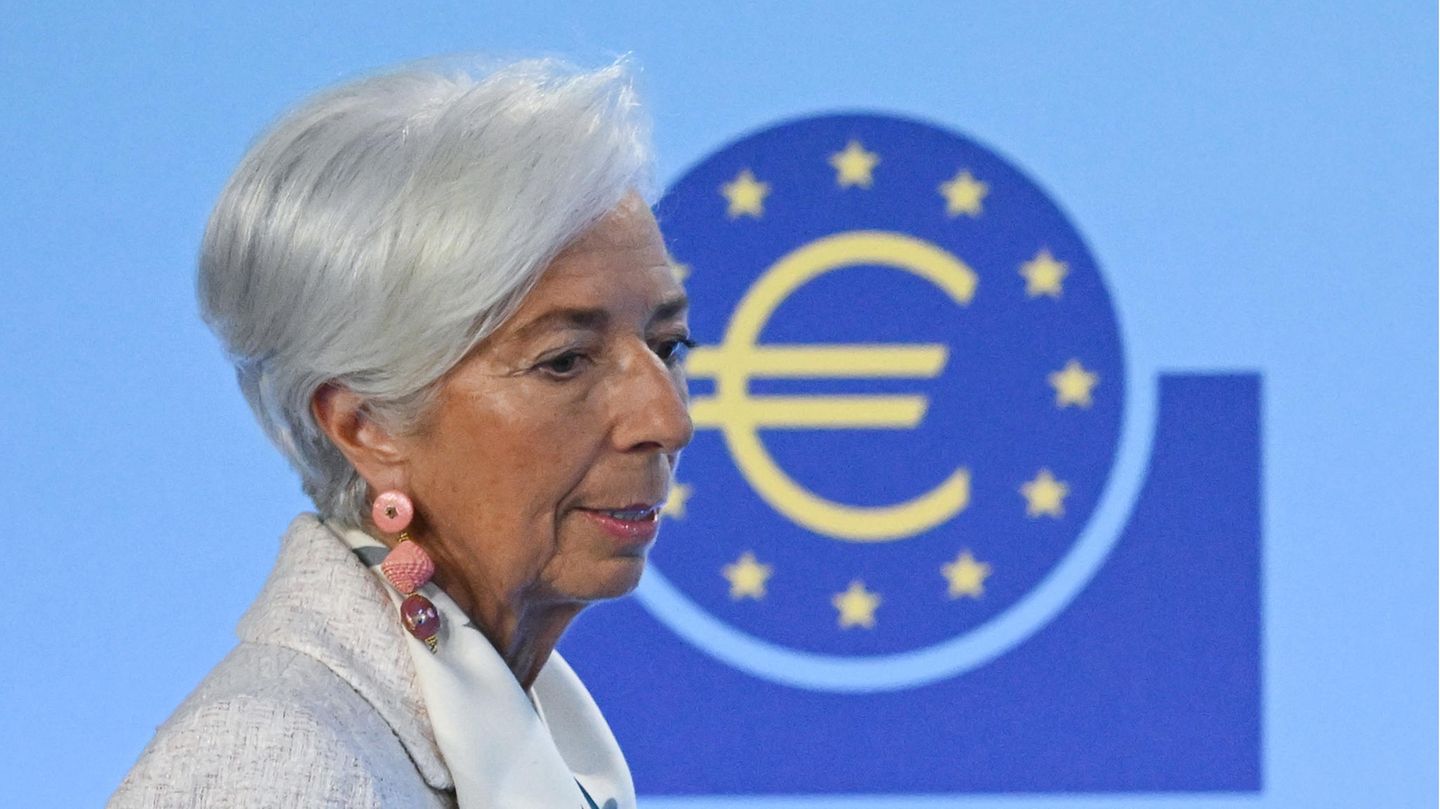The inflation rate is slowly falling again – will the key interest rate in the Eurozone also be reduced again? There are still risks that could be decisive for the ECB.
The speculation has been going on for a long time: analysts have been predicting falling interest rates for months. Your forecasts now have a powerful argument. The current inflation rate for the euro area was announced on Tuesday. The good news: consumer prices are no longer rising as much as before. Compared to the same month last year, prices rose by 2.9 percent in October, according to initial data. Experts had previously expected 3.1 percent. In September, the inflation rate in the euro zone was 4.3 percent.
ECB President Christine Lagarde’s interest rate rally could soon be over. Already at the most recent meeting of central bank chiefs – last week in Athens – it was expected that the ECB would stop the most aggressive series of interest rate hikes in its history. That’s how it happened: After ten interest rate increases in a row, the central bank left interest rates in the euro area unchanged for the time being. The ECB Council left the key interest rate at 4.5 percent.
When will the ECB cut key interest rates again?
In addition: The European Central Bank recently announced that it was likely that core inflation had peaked. According to the ECB experts, the peak was reached in the first half of the year. Core inflation describes the development of consumer prices without taking the food and energy segments into account.
Loan, interest, repayment
This is how you calculate realistically how much money you need to buy a property
Now the question is no longer whether, but when the key interest rates will actually fall again. “That was a confirmation that we are actually through with interest rate increases,” says Carsten Brzeski, chief economist at ING for Germany and Austria, about the last decision. Paradox: If the European economy grew faster than expected in the coming months, an increase would be possible again. The idea behind the interest rate increases: to slow down the economy and thus inflation. That worked, says Brzeski. Nevertheless, the inflation rate is still 2.9 percent. And thus clearly above the ECB’s two percent target, where central bankers see price stability.
Israel-Gaza conflict affects energy prices
The conflict between Israel and Hamas has a strong impact on global energy prices. Although the price of oil fell on Monday – despite the expansion of the ground offensive against Hamas – a sharp and spontaneous increase is still expected. The World Bank said oil prices could reach “uncharted waters” if the conflict escalates further. A factor that ECB President Christine Lagarde is also keeping an eye on. Pierre Wunsch, head of the Belgian central bank, told US news channel CNBC that a prolonged shock in oil markets could lead to another interest rate hike – although inflation is currently on track.
The president of the Portuguese central bank, Mario Centeno, confirmed to his Belgian counterparts: “Barring any additional shocks that we don’t see coming, we are through with increases. That is my interpretation of the decision in October.” Austria’s central bank chief Robert Holzmann said the ECB could raise one or two more interest rates if there are “additional shocks” to the economy.
.
Source: Stern




